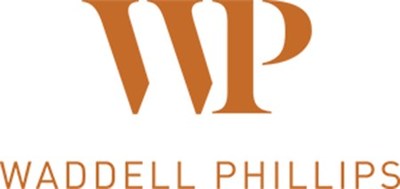Class Action Certified Against Global Learning Group Inc. For "Sham" Charitable Donation Tax Scheme
TORONTO, Jan. 16, 2020 /CNW/ - The law firms of Waddell Phillips Professional Corporation and Klein & Schonblum, Associates today announced that a class action lawsuit has been certified against Global Learning Group Inc. (GLGI), and other professionals, individuals, and entities involved in the development, structuring, creation, promotion and operation of the Global Learning Gifting Initiative Charitable Donation Program (the Gift Program). The Gift Program was a complex leveraged charitable donation tax scheme that operated from 2004 to 2014. As well as GLGI, the defendants include several prominent law firms and accounting firms, and the promoters of the Gift Program.

The class includes:
All persons who participated in the Global Learning Gifting Initiative Charitable Donation program ("the Gift Program"), exclusive of the Defendants, their family members, employees, agents, assigns, parent or subsidiary or affiliated companies, and any person or entity who provided services to one or more of the Defendants in respect of the creation, promotion, marketing or sale of the Gift Program, including any sales agents or distributors, and exclusive of Juanita Mariano, Douglas Moshurchak, Sergiy Bilobrov, Melba Lapus, Lylyne Santos, the Estate of Penny Sharp, and Janice Moshurchak.
Importantly, the class excludes the employees of the promoter, and anyone who was a sales agent or "fundraiser" who sold the Gift Program to taxpayers and received a commission.
Anyone who meets the class definition will automatically be included in the class action, unless they take steps to exclude themselves by "opting out".
There is no out-of-pocket cost or charge to Class Members. Class Counsel are working on a contingency fee basis, which means that they only get paid if the class action is successful in recovering money for the Class Members. The fees that Class Counsel will be paid, and the amount they will be reimbursed for the expenses they incur in running the case (disbursements), will have to be approved by the court before they are paid.
Nor is there any risk of Class Members being held responsible for any adverse costs of the class proceeding. The action is funded by the Ontario Class Proceedings Fund, which provides the representative plaintiffs with an indemnity against any adverse costs awards.
The Claim alleges that GLGI led the participating taxpayers to believe that the Gift Program was a legitimate charitable enterprise and that their donations to the Gift Program would ultimately result in gifts of cash and valuable software licenses to designated bona fide charities. Participants were told that they would receive charitable tax receipts exceeding their cash donations by many multiples based on the value of the donated software licenses, and that they could then claim charitable tax credits on their tax returns. As many as 50,000 - 60,000 Canadians participated in this charitable donation tax scheme, and paid in excess of $500,000,000 in what they thought were charitable donations.
In the mid-2000s the Canada Revenue Agency (CRA) began reassessing the tax returns of those who participated in the Gift Program. It has disallowed the claimed tax credits and charged the taxpayers penalties and interest. The Claim is seeking to recover the money paid into the Gift Program by the Class Members, as well as the interest or penalties assessed by CRA.
In 2015, the Tax Court of Canada found that the Gift Program was a 'sham' perpetrated by GLGI. GLGI and its accomplices received approximately 90% of the cash donations made by the taxpayers. The Tax Court also concluded that the software license valuations obtained by GLGI to support the value of the charitable tax receipts vastly overestimated the actual value of the software licenses, which were actually worth only $0.13-$0.26 each, and that the trust structure of the Gift Program was invalid.
The Claim alleges that there was no genuine charitable purpose to the Gift Program. Rather, the primary purpose of the Gift Program was to enrich GLGI and associated companies and their principles to the detriment of the Class Members.
Additional information about this case is available at www.glgiclassaction.com
SOURCE Waddell Phillips Professional Corporation
News published on and distributed by:



